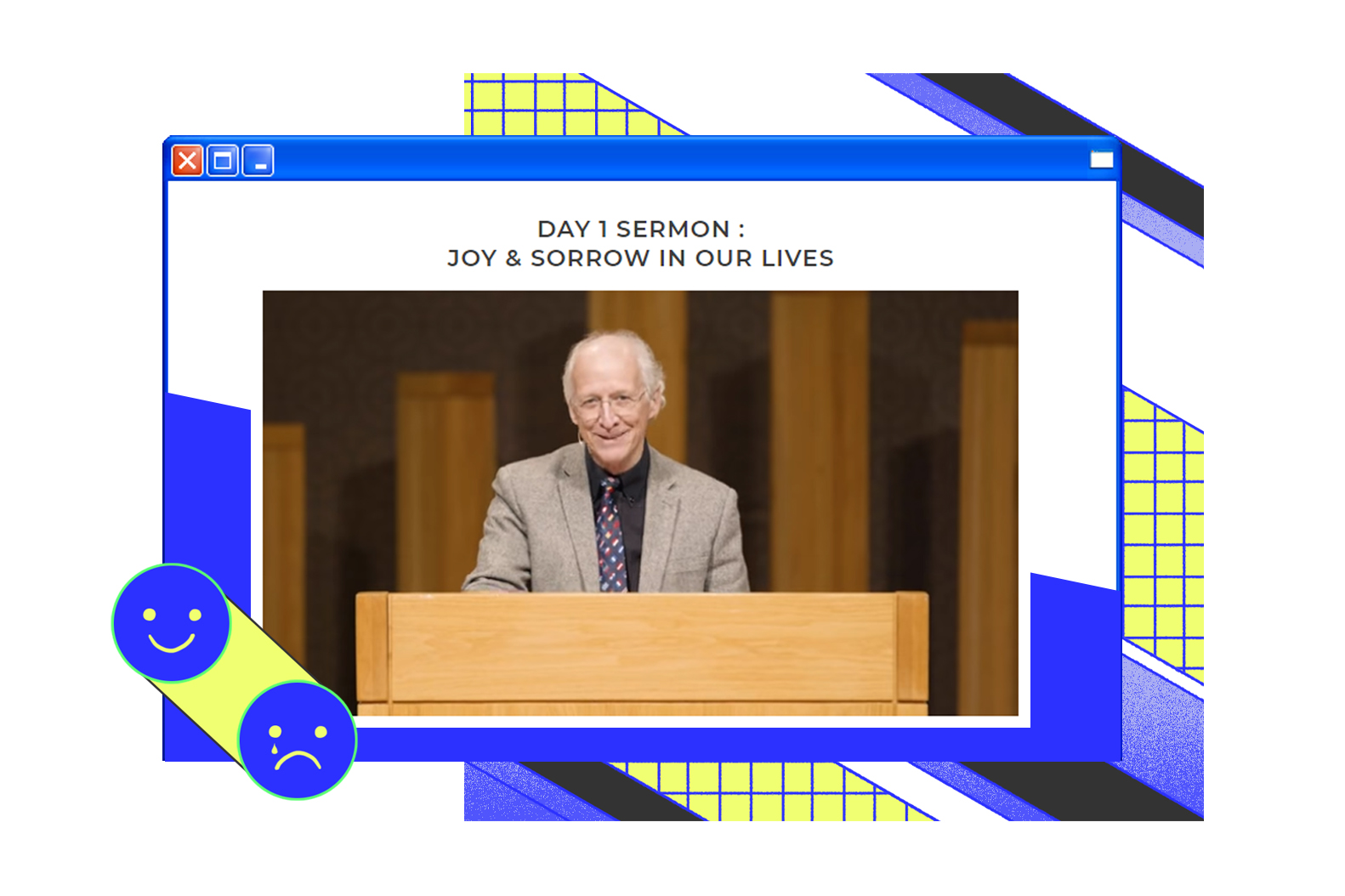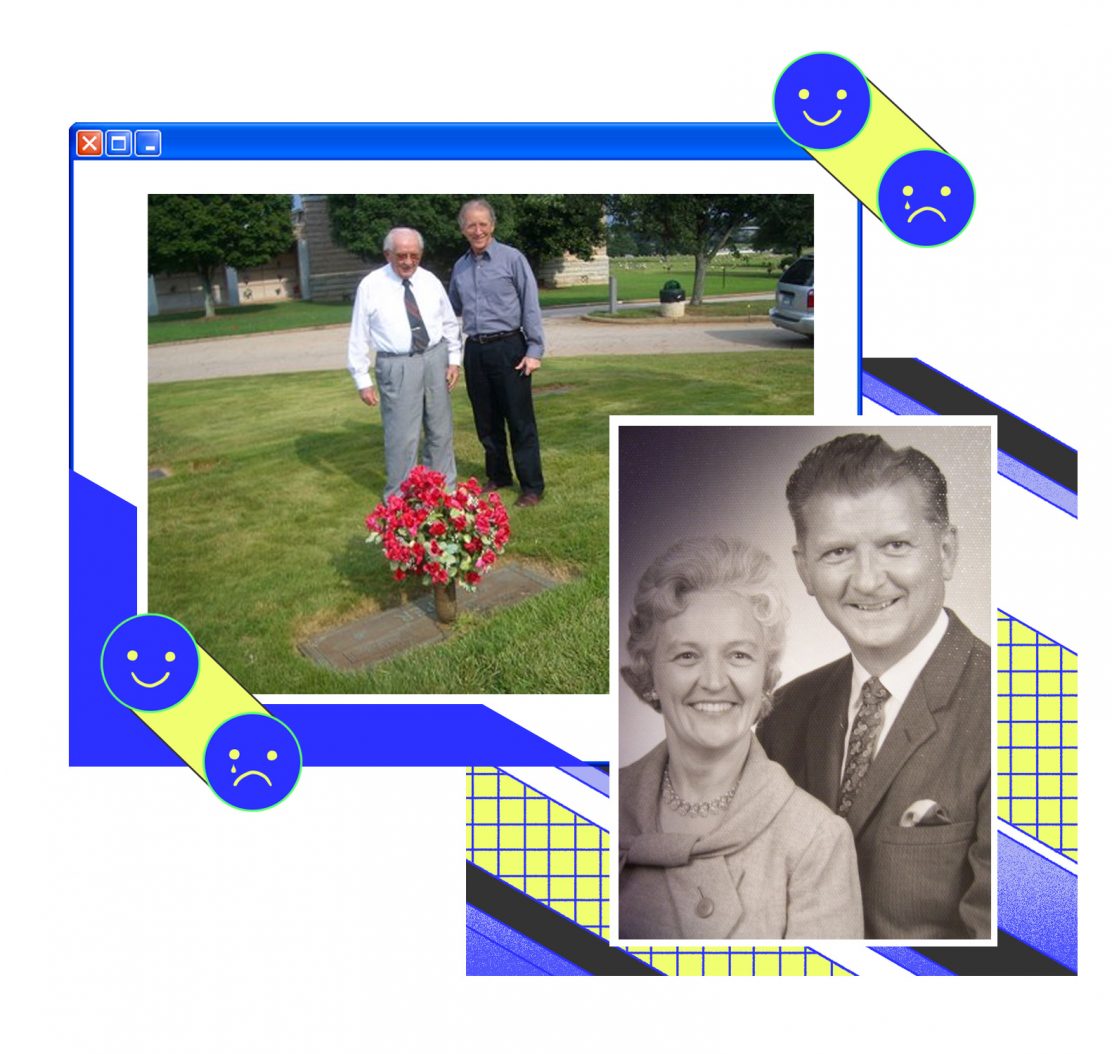Does joy follow suffering? Or is there joy within suffering?
For Pastor John Piper, those are natural questions to ask because every human being will experience both of them.
Speaking at the online John Piper Equip Conference organised by Adam Road Presbyterian Church, Piper explained that being “overwhelmed with sorrow” is bound to happen in life, as is the same with experiencing “tastes of tremendous joy”.
The central question for Piper, however, deals with how the two are bound up together. How do joy and sorrow relate to each other?
Piper looked to answer questions like these in his message titled “Joy in Sorrow”, which unpacked two groups of Scripture, each showing the relationship between joy and sorrow as either sequential (joy after sorrow) or simultaneous (joy in sorrow).

Before embarking on his message proper, the 75-year-old theologian first took pains to emphasise an important learning point when it comes to reading the Bible.
“We are all prone to pick a group of passages that say what we love, and focus on entirely on that, and neglect another group of passages that seem to say another thing,” he said. “They’re troubling, and so we don’t look at them very much”.
The founder of Desiring God revealed that decades of teaching the Bible has shown him that we sell ourselves short and lose out on biblical wisdom and insight when we do that.
The better way is to be honest with both groups of passages simply because they are both in the Bible and can both be true.
“God does not contradict Himself, and I’m going to push down into the reality until I see the common root,” urged Piper. “And that’s where theology gets really rich. Rich for our minds, but especially rich for our souls and for our life.”
THERE’S A TIME FOR SORROW AND A TIME FOR JOY
Piper began with Psalm 30:5, quoting from the ESV translation throughout his sermon:
“For his anger is but for a moment, and his favour is for a lifetime. Weeping may tarry for the night, but joy comes with the morning.”
“In some sense, the joy that comes in the morning, wasn’t there in the evening,” acknowledged Piper. “And the weeping that was there in the evening, goes away in the morning. That’s a real sequence. That’s a real experience.”
He also read from Psalm 126:5-6:
“Those who sow in tears shall reap with shouts of joy! He who goes out weeping, bearing the seed for sowing, shall come home with shouts of joy, bringing his sheaves with him.”
Piper said the verse shows us a picture of a brokenhearted farmer who is weeping as he sows. But later, at the harvest, there are shouts of joy.

From the New Testament, Piper cited John 16:16-24 where the disciples, through Jesus’ story of a woman giving birth, were told that they would walk through “hours of sorrow”, which would be followed by “hours of rejoicing”.
Then there is also the simple command in Romans 12:15:
“Rejoice with those who rejoice, weep with those who weep.”
In that vein, Piper’s advice was simple: Don’t plan funerals as though they were festive weddings just because Paul said “rejoice always” in Philippians 4:4.
Similarly, don’t throw “a blanket of gloom” onto the wedding of a bride just because of what is found in Ecclesiastes 7:2.
Instead, Piper pointed to Ecclesiastes 3 – there is a time and season for everything.
Taking an even more macroscopic view of things, Piper underlined what he calls “cosmic” or “historical sequence” from Revelation 21:3.
“There’s a sense in which we can say this present, fallen age in which we live our lives, is an age of tears,” he explained.
“It’s an age of mourning, it’s an age of crying, it’s an age of pain. And then Jesus comes at the end of that age, and the former things pass away.”
WHERE SORROW AND JOY MEET
Launching into the next group of verses, Piper looked at one of the most popular Bible verses in Philippians 4:4:
“Rejoice in the Lord always; again I will say, rejoice.”
It is important to note that Paul did not have to say “always”, he pointed out.
Additionally, Piper found the context of the verse particularly revealing: Paul was dealing with the painful conflict between Euodia and Syntyche whom he wished could agree in the Lord. It was in that conflict between the two women that Paul said to rejoice always.
Piper’s point was that the struggles Paul faced in the passages immediately before did not preclude his ability to rejoice in later ones.
“Even while tears are flowing in verse eighteen of chapter three, verse four of chapter four is true,” he mused.
“How could he weep over their not rejoicing in Christ if he ceased to rejoice in the One he wants them to rejoice in?”
Paul had been weeping over people who were lost; he was tearful over those who were perishing. But he did not allow himself to be emotionally blackmailed by the “enemies of the cross”.
Speaking about Paul’s steadfastness, Piper said: “They cannot manipulate him by demanding the ruin of his joy because of their unbelief. Paul won’t let him do that, and you shouldn’t let people blackmail you emotionally.”
“How could he weep over their not rejoicing in Christ if he ceased to rejoice in the One he wants them to rejoice in?” he asked.
“He would die for their joy in Christ. Will he then stop rejoicing in Christ when he’s willing to lay down his life, that they would join him in rejoicing in Christ and stop being enemies of the cross? No… He loves them too much and he loves Christ too much.”
Piper then said it should be noted that Paul’s tearfulness was not an intermittent (sequential) thing because of the “unceasing anguish” he describes in Romans 9:2-3.
Paul was someone who would switch places with unbelievers if it meant they could know Christ, someone who went to bed every night with this weight on his chest — and yet this is the same man who urges us today to rejoice always.

Piper’s two other passages that show the simultaneous nature of joy in sorrow were Romans 5:3-5 and 2 Corinthians 6:10.
“Not only that, but we rejoice in our sufferings, knowing that suffering produces endurance, and endurance produces character, and character produces hope, and hope does not put us to shame, because God’s love has been poured into our hearts through the Holy Spirit who has been given to us.”
“Now that is the most extended explanation of how it can be, that joy happens unshakeably in suffering,” remarked Piper.
“It goes like this: suffering produces the endurance of faith, and when faith survives that crisis of suffering and flourishes in it, it reveals character – the character that God approves of.”
Piper goes on to say that it is “this sense of approvedness”, that your faith did not fail in that season of suffering, is what gives rise to hope.
Verse 5 is also crucial in our understanding of how joy can be possible in times of trial, he added.
“The reason your hope in suffering does not put you to shame or give out is because the love of God, that is your being loved by God, is poured by the Holy Spirit into your heart. That’s a miracle.”
It is a beautiful thing to have that experience – where we know we are loved by the Creator of the universe.
“That’s the longest, most detailed, richest, deepest justification for joy in sorrow in the whole Bible,” he declared.
Finally, the last text of the group came from 2 Corinthians 6:10.
“We are treated… as sorrowful, yet always rejoicing; as poor, yet making many rich.. “
“That phrase ‘sorrowful yet always’ shows that we haven’t done anything amiss by putting verses together here in this second group,” said Piper.
“Sorrowful, yet always. He’s the one who put them together in one phrase. Paul puts them together in one phrase: sorrowful yet always rejoicing.”
In conclusion, both groups of Scripture are true:
- Rejoicing follows sorrow.
- Rejoicing is maintained in sorrow.
Having looked at these seemingly contrasting texts, Piper then moved on to three observations that he wanted to leave with the audience.
3 THINGS WE SHOULD KNOW
The reasons for joy and sorrow are different
“Both sets of reasons for why there should be sorrow and why there should be joy are true. They’re not contradictory,” he said.
Piper then shared about how he knows this personally to be true, through the story of how he experienced his mother’s death.

“I was 28 years old, and my mother and my father were leading a tour in Israel. I was married, had a two-year-old, and the phone rang with one of those calls you want never to get.
‘Hey Johnny, this is Bob (brother-in-law). I’ve got bad news: Your mum and dad were in a bus accident hours ago, and your mother didn’t make it. Your dad is seriously injured and we don’t know if he’s gonna make it. I don’t know anything else, I’m so sorry, I’ll keep you posted.’
So I give those facts to my wife, I take Karsten’s hand off my pants leg where he’s saying: ‘Daddy, sad?’, and I go back and I kneel down at the bed and I cried. I mean, I cried like I had never cried, and have never cried since, for a very long time.
And while I was weeping – I did not plan this – there erupted from my memory and from my heart, explosive joy.
‘Father, thank you, she was a spectacularly good mum. Father, thank you, you gave her to me for 28 years. Father, thank you, in recent years, that we had a clearing of the air, from all my teenage, feisty disrespect and ingratitude, and things were good between us. Father, thank you, that evidently she didn’t have to suffer long at all. Father, thank you, that she is happier right now in the presence of Jesus than I am sad at her loss. And Father, thank you, that my dad is still alive, please, please, please save Him.’
There is no doubt in my mind that that was real joy. And real, heaving sorrow. Nobody could persuade me that this is not possible – to have joy of the profoundest, richest, sweetest kind, under the waves of sorrow.”
That moving, personal experience was the basis for Piper’s first observation: It is possible to experience joy in sorrow.
Tearless joy is coming
Piper’s reading of Revelation 21 also informs him that tears are correlated with death and loss, and crying is correlated with pain.
“He will wipe away every tear from their eyes, and death shall be no more, neither shall there be mourning, nor crying, nor pain anymore, for the former things have passed away.” (Revelation 21:4)
“So pain and loss hurt. They just hurt,” he acknowledged.
“You can’t stop them from hurting anymore than if you smash your finger with a hammer. They hurt. That’s what pain is. Pain is what brings up sorrow. Pain brings up crying.
“Christian joy doesn’t mean you don’t feel pain. And when we feel it, when tears come, that’s real. We don’t decide for them to come, they just come. We don’t decide to say ‘ouch’ — you just say it.”
But Piper also explained that the Bible speaks about a time when painful joy in God will be replaced by painless joy in God.
“When the Psalmist says weeping may tarry for the night but joy comes in the morning, he means, tearful joy in God will be replaced by tearless joy in God,” Piper asserted. “The tears will be wiped away. The pain will be healed.”
“You can’t stop pain and tears from coming, but you can keep joy from going. Because the pain and the joy are grounded in different realities,” he said.
Jesus and the boulder of joy
Finally, Piper asked the congregation to picture joy as a big granite boulder on the rugged sea coast of their lives.
“That boulder of joy is solid, because it’s built out of the sovereignty of God, the forgiveness of sins and the preciousness of Jesus. God is in charge of your life down to the details. In Jesus, there is now no condemnation. And Jesus is the all-satisfying treasure of my life. That’s the boulder that makes it big and strong and unshakeable.
In the calm seas, the boulder is exposed to the sunlight and it shines. It shines with glistening silvery laughter. Picture that: a massive boulder shimmering with laughter in the sunlight as the calm sea spreads around.
And then the storm calms, and the waves rise. And they crash over this boulder. And they submerge it – out of sight. And the bright shimmering laughter disappears under the surface of tears and the surging waves of weeping and sobbing.
But nothing – nothing can dislodge this boulder of joy in all that God is for us in Jesus. It cannot be broken in pieces. It cannot be sucked out into the sea. And when the waves recede, joy comes in the morning… When they recede, the boulder shimmers again in the sunlight with laughter.
Tearful joy, tear-full joy… gives way to tearless joy.”

Piper wrapped up with an encouragement for believers.
The goal, he challenged, is to grow into mature, strong and stable Christians who know from experience and Scripture that weeping lasts for the night, but joy comes in the morning.
To that end, there is great value in acknowledging that joy and sorrow can happen sequentially or simultaneously.
If we accept that these two natures can coexist, then we will not end up forcing people into emotional spaces they are perhaps not yet ready for, or deprive others of the knowledge that they can have joy even in the midst of their worst crises.
Tearful joy in God will be replaced by tearless joy in God.
Closing with a prayer, Piper thanked God for the great boulder in life that Christ is for every believer: “Your sovereignty, your Son’s saving work and His precious friendship satisfying our souls is a boulder nothing can break in pieces. Nothing can suck it out into the sea.
“But oh, how it can be covered with tears! Until the day comes when we bring our sheaves back, with shouts of joy, go deep with my friends, go deep with these folks, I pray, and take them down into the glorious strength of all that you are for them in Jesus, that can never, never be shaken.
“I ask this in Jesus’ name, amen.”
This article was produced from Pastor John Piper’s sermon on Day 1 of Adam Road Presbyterian Church’s John Piper Equip Conference. You can listen to the full sermon here. Day 2’s Q&A with Pastor John can also be found here.
WE’RE DOING A GIVEAWAY!

10 readers can stand a chance to receive Pastor John Piper’s book, When I Don’t Desire God. Simply join our Telegram channel for more details!
- When was the last time you experienced both sorrow and joy?
- In that moment, did you personally experience the love of God, poured out by the Holy Spirit, into your heart? How did it move you?
- What does it mean for you to have unshakeable joy in Jesus based on your circumstances today?









